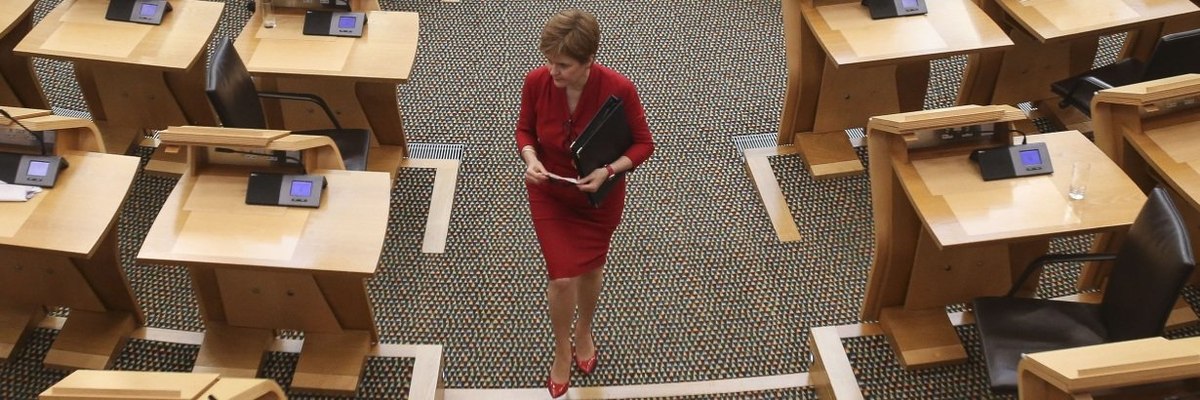Scots are split on whether the alliance will be good for the country, but do think it will make tackling climate change easier
In late August, following the SNP’s failure to win a majority in May’s Scottish Parliament elections, the nationalists agreed to a power-sharing partnership with the Scottish Green Party. It signifies the first time a Green party has entered a national government in the UK and means there is a ‘fixed’ majority with the SNP in Holyrood for their shared policy areas, including Scottish independence, which the Greens also support.
However, there are other areas the Greens have opted out of such as aviation, private schools and views of economic growth, which would have had difficulty in reaching an agreement with the SNP. This allows them to retain the ability to criticise the government of which they would become part.
When asked about the new alliance, new YouGov data shows that Scots are divided about the power-sharing partnership, with 39% saying they support it whilst 41% are in opposition. The vast majority of SNP voters back the move (73%), with only 13% opposed.
Overall, one in nine Scots haven’t heard of this partnership at all (11%) whilst a further quarter are aware of it but don’t know anything about it (25%).
Scots are split when asked about the impact of the partnership on Scotland, with a third saying it will either make it better (32%) or worse (29%). Only 15% think it will make no difference one way or another.
What do Scots think the SNP-Green alliance means for policies on the environment and other areas?
With the Greens receiving two ministerial positions in the Scottish government – both environment-related portfolios – what are the public’s expectations for the new government’s ability to forge a way forward on green issues?
Almost half (46%) think it will be easier to reach an agreement in tackling climate change.
The exploration of new oil and gas resources, however, is expected to be more challenging (44%), particularly as the Greens’ stance on fossil fuels will cause complications to the SNP’s reluctance to abandon this type of energy source.
Whilst there has been debate about the potential damage of implementing stricter policies on fish farming on the sector, more think it will be easier to achieve (29% compared to 15% who say it will be harder).
One of the areas the Greens have signed up to as part of the partnership is the road building scheme, despite the fact they are not wholly supportive of it. Scots seem to sense the potential challenges, as two in five (39%) think reaching an agreement could be harder.
Meanwhile, there is ambivalence in securing the scrappage of council tax, an area which Greens support and the SNP have pledged but never achieved, with 39% thinking the alliance will make no real difference.
What do Scots think the SNP-Green alliance means for another independence referendum?
Both the SNP and Scottish Greens want another referendum when the pandemic eases, preferably before the end of 2023. But do Scots support going to the ballot box once again?
The public are closely split, opposing another referendum by 47% to 44%. This opposition increases amongst older people (60% of those aged 65 and older have this view compared to just 33% of 16 to 24 year olds) and 2019 Conservative, Labour or Liberal Democrat voters (6-29%, versus 79% of SNP voters).
Despite this, around two in five (43%) think securing another independence referendum within five years will be easier due to the SNP-Scottish Green partnership.
See full results here









